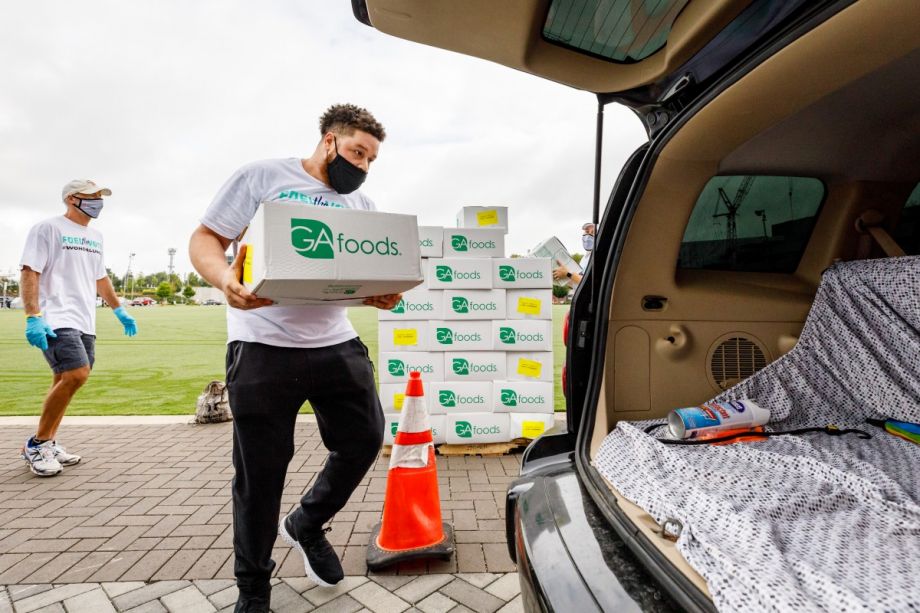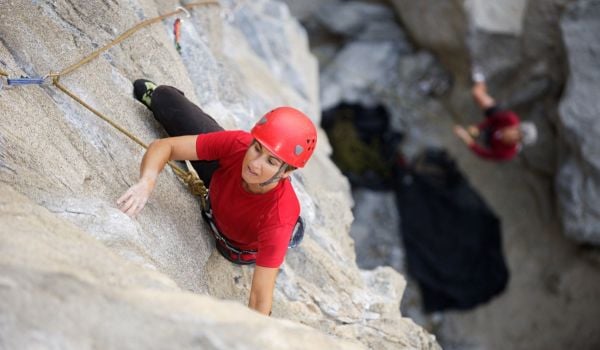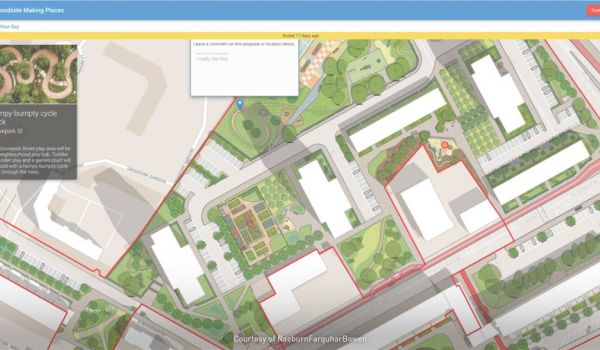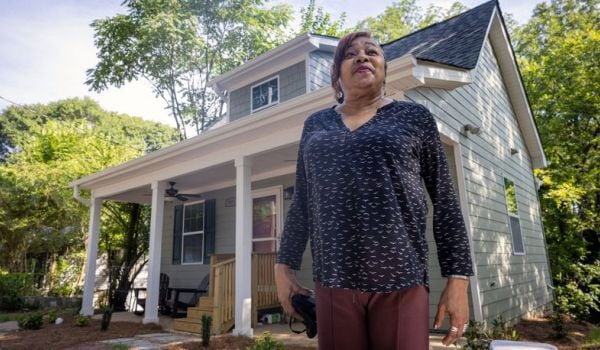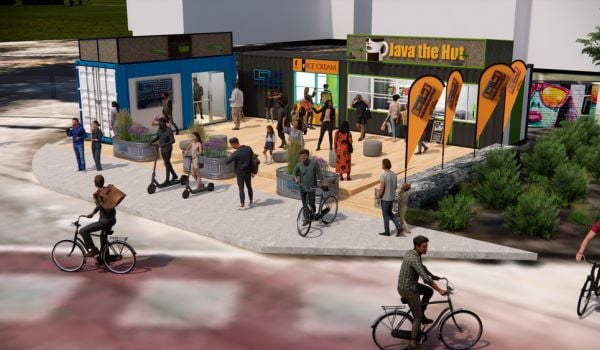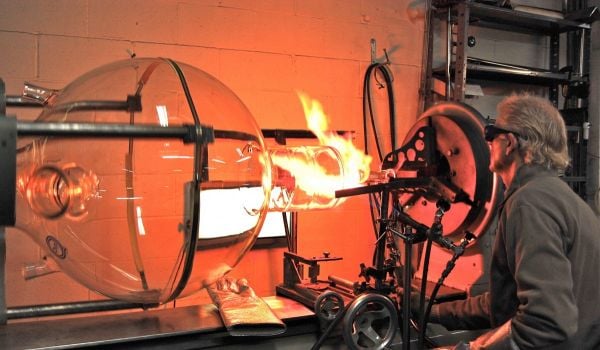Adjacent to the Mercedes-Benz Stadium in downtown Atlanta, home to the NFL’s Atlanta Falcons and MLS’s Atlanta United, are the historic Black communities of Vine City and English Avenue. These communities are home to civil rights legends, movement building and the Atlanta University Center. The history is deep and proud. It is also painful—rooted in structural racism—the effects of which are still present in low rates of home ownership, substandard housing, and intergenerational poverty. However, there is also pride in community resilience. Over the last five years, residents, nonprofits and public and private entities have been working with us at The Arthur M. Blank Family Foundation on community development efforts through the Westside Neighborhood Prosperity Fund. Our partners are helping to develop and implement strategies that address economic inclusion and resilience, health equity, education and youth development, housing and parks, and civic and community engagement.
COVID is the latest test of the Westside’s resilience, impacting access to jobs and childcare. Some families are choosing between food, utilities, rent and medicines to make ends meet and are on the financial precipice. There is no fallback plan or safety net. What is resilience in the face of extreme financial hardship?
Pre-COVID, 40% of Americans did not have $400 in their bank accounts to cover emergency expenses. In the ongoing destruction of the twin pandemics of COVID and structural racism, the lack of a savings safety net during times of stress and disaster are particularly acute for Black and Latinx workers who have been disproportionately affected by job losses. Fifty-eight percent of Black and Latino families lack at least three months of savings and other assets to rely on. Howard University professor, William E. Spriggs, noted in a New York Times article that when “…30% of the population has no wealth, this has real implications…there isn’t a piggy bank. This is it.”
It is hard to find any silver lining when the bottom is falling out. Still, there are glimmers of hope. I think of a Westside resident who recently purchased her first car. Her hard work to reach this milestone encompassed trust building with a financial coach, family meetings, a new job she loves, a new bank account and tackling long-term debt. She took her credit score from 560 to over 700. Her story is complex, often tangled in intergenerational poverty and trauma. There was no one solution. She is now building her savings so she can qualify for affordable home ownership opportunities through the Home on the Westside program from our partner Westside Future Fund. She would be the first in her family to own a home and start on a path of income building to wealth building.
There are three factors to her story that we can learn from to create solutions for an inclusive and equitable recovery:
1. One-on-one trusted financial coaching is key. Through the On the Rise Financial Center, a nonprofit financial center for individuals and families, this resident received her credit report and score and a coach who helped her digest the information. Her coach spent time building a relationship with her to help her understand the system and create a budget to achieve her financial goals. He helped her open checking and savings accounts. Together, they prioritized her debt pay-off and savings goals, and most importantly see how building savings and financial security can help her attain her dreams.
2. Building credit positively impacts wealth building. More than 400 clients who have gone through financial coaching at The On the Rise Financial Center. Approximately 30% of clients have no prior credit history, and for those who do have credit, the average credit score is 550 (the national average in 2019 was 702). Comparing data by race reveals only 20% of Black families have credit scores over 700 while more than 50% of White families meet or exceed 700. Residents tell me they cried seeing their score the first time knowing what it was costing them. A credit score of 550 is considered sub-prime. A sub-prime score yields higher interest rates on car loans and credit cards, and a lower likelihood of securing a mortgage or business line of credit. Compounding the issue, for the 90% of Westside residents who are renters, on-time rent payment transactions are not counted towards their credit score AT ALL. Dreams of home ownership or entrepreneurship can be dreams deferred due to poor credit and lack of access to safe credit building tools.
3. Savings is an important tool for resiliency and recovery. Westside residents are working hard, but they are not earning sufficiently to make ends meet, let alone save. Pre-COVID, we were working with partners on a savings pilot program to help Westside residents build and maintain at least $400 in savings. COVID disrupted the deployment of the program, but this pause has allowed us to look at how we can better meet the needs of residents through financial coaching and incentives to save over periods of time with dignity, without restrictions and requirements. We are overdue for having meaningful conversations about recovery and resiliency for Black families! Westside families that had little to no savings pre-COVID are on the precipice of financial disaster if one or more people in the household becomes unemployed or faces a reduction in hours. We must work to strengthen family financial resiliency now and are looking forward to starting a savings recovery program in early 2021.
We have made some progress. In 2019, the Equifax Foundation, United Way of Greater Atlanta, The On the Rise Financial Center and The Blank Family Foundation created Greater Atlanta Builds Credit (GABC) to assist Atlantans with financial coaching, building credit and gaining access to safe and affordable banking products. We hope to expand GABC’s reach so that all Atlantans who need free financial services can receive them. As a COVID relief program, the Equifax Foundation, Mobility Capital Finance and Quest Communities Development Organization are piloting a rent assistance and reporting program that will allow people to build credit through assisted rental payments. We will learn from the more than 20 participating families about their experiences with this dual-purpose emergency financial assistance product.
Public and private entities and nonprofits must work together to expand financial well-being, credit coaching and access to safe banking products, and provide real opportunities to help put families on the path to financial resiliency and economic mobility.
We have a clarion call to right historic wrongs of structural financial inequities. Let us truly live into Dr. King’s exhortation to be weavers of a new shared garment of our collective destiny. The piggy bank is ours to grow. The mantle is ours to bear. The tapestry awaits.
Suganthi Simon is Senior Program Officer at The Arthur M. Blank Family Foundation. In this role, she leads the Foundation’s community development work in the historic neighborhoods on Atlanta’s Westside, leading the Westside Health and Economic Inclusion Collaboratives, as well as the Foundation’s efforts around civic empowerment and community engagement.

